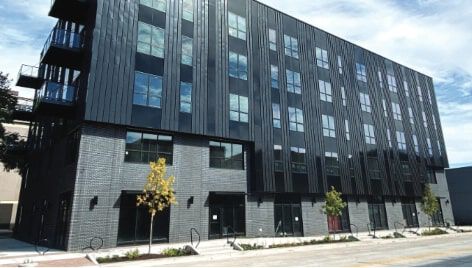Securing Multi-Dwelling Unit Web Traffic Via Robust Encryption Standards to Protect End-User Privacy as well as Data Integrity
Securing Multi-Dwelling Unit Web Traffic Via Robust Encryption Standards to Protect End-User Privacy as well as Data Integrity
Blog Article
In today’s digital world, securing internet traffic is increasingly important than ever before, particularly in Multi-Dwelling Units (MDUs) such as flat complexes and condominiums settings. Such settings often have numerous tenants sharing the same web service, which can result to potential safety threats. To guarantee that residents' confidentiality and data security are maintained, it is vital to adopt strong encryption standards. Encryption is a technique that scrambles data, rendering it unreadable to anyone who do not have the appropriate key to decrypt it. This process aids maintain personal data secure from hackers and unapproved users.
A of the most widely used encryption standards is SSL Sockets Layer (SSL) and its successor, TLS Security (TLS). Such standards establish a protected connection between a resident's system and the web, ensuring that all information exchanged remains private. When residents in an MDU access websites that employ SSL/TLS, their private data, including login credentials and payment billing details, is encrypted. This means that although when someone attempts to intercept the information, they would merely see a jumble of letters and numbers, rendering it nearly impossible to comprehend. By promoting the adoption of such protocols, MDUs can significantly enhance the safety of their residents' internet actions.
Another important coding technique is Virtual Private Tunnel (VPN) solutions. A VPN creates a secure tunnel for web traffic, which protects individuals from prying observers, especially when accessing public Wi-Fi connections. In an MDU, in which many residents may link to the same service, employing a VPN can help ensure that individual internet actions remain private. This is especially important for tasks such as online transactions or accessing sensitive information. By promoting the use of VPNs among tenants, MDUs can cultivate a safer online environment and help protect against data breaches.
Alongside such coding techniques, it is vital for MDUs to educate their residents about the significance of cybersecurity. Many individuals may not be aware of the risks linked with utilizing common web services. Providing information on how to identify scam efforts, the necessity of robust passwords, and the benefits of employing secure sites can empower tenants to assume charge of their online security. Workshops network security for apartment complexes or educational meetings can be beneficial ways to increase knowledge and encourage best habits for online security.
Finally, MDUs should think about collaborating with internet service companies (ISPs) that emphasize safety and offer advanced encryption features. By collaborating with ISPs that implement strong coding protocols, MDUs can ensure that their tenants have availability to protected web services. This partnership can result to enhanced overall safety for the whole building, as well as increased confidence among tenants. By implementing these measures, MDUs can create a more secure internet environment, safeguarding resident privacy and information security in an ever more interconnected environment.